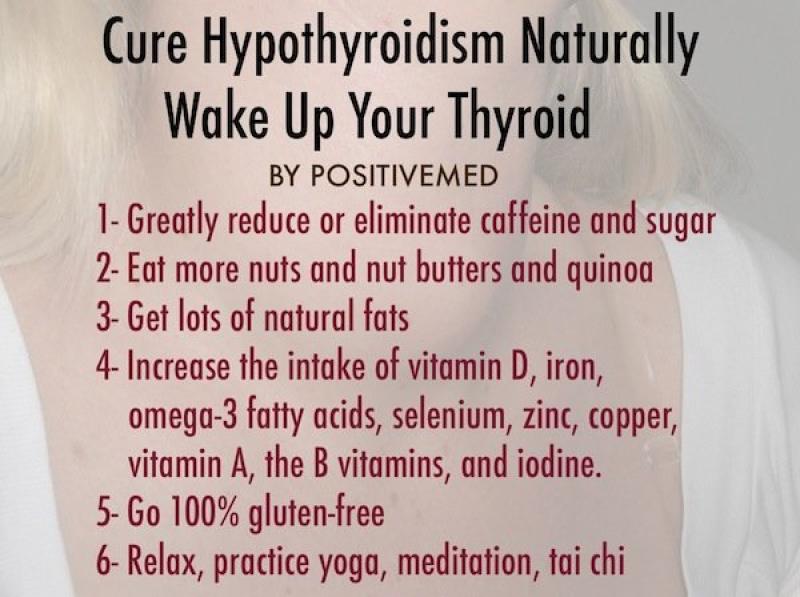How to treat hypo and hyper thyroid with natural remedies?
While natural remedies may provide support for individuals with hypothyroidism or hyperthyroidism, it's crucial to note that these approaches should complement conventional medical treatments rather than replace them. Thyroid disorders are complex conditions, and medical supervision is essential. Always consult with a healthcare professional before making significant changes to your treatment plan. Here are some natural remedies that may offer support:
Hypothyroidism:
Iodine-Rich Foods:
- Hypothyroidism may result from iodine deficiency. Include iodine-rich foods in your diet, such as seaweed, iodized salt, fish, and dairy.
Selenium Supplements:
- Selenium is important for thyroid function. Consuming selenium-rich foods like Brazil nuts or taking a selenium supplement may be beneficial.
Vitamin B12 and Iron:
- Ensure an adequate intake of vitamin B12 and iron, as deficiencies can contribute to hypothyroidism. Foods like lean meats, fish, and leafy greens are good sources.
Adaptogenic Herbs:
- Adaptogens like ashwagandha and rhodiola may help the body adapt to stress and support overall well-being. Consult with a healthcare professional before using herbal supplements.
Omega-3 Fatty Acids:
- Include foods rich in omega-3 fatty acids, such as fatty fish, flaxseeds, and walnuts, as they have anti-inflammatory properties.
Lifestyle Changes:
- Manage stress through practices like yoga, meditation, or deep breathing exercises. Chronic stress can impact thyroid function.
Hyperthyroidism:
Limit Iodine Intake:
- In hyperthyroidism, excessive iodine can exacerbate the condition. Avoid iodine-rich foods like seaweed, iodized salt, and certain supplements.
Lemon Balm and Bugleweed:
- Some herbal supplements, such as lemon balm and bugleweed, may help manage symptoms of hyperthyroidism. However, their use should be supervised by a healthcare professional.
L-Carnitine:
- Some studies suggest that L-carnitine supplementation may be beneficial for individuals with hyperthyroidism. Consult with a healthcare provider for appropriate dosages.
Healthy Diet:
- Focus on a well-balanced diet with plenty of fruits, vegetables, and lean proteins. Avoid excessive caffeine and stimulants.
Stress Management:
- Stress reduction techniques, including meditation, yoga, or acupuncture, may help manage symptoms associated with hyperthyroidism.
Adequate Sleep:
- Ensure sufficient and quality sleep, as sleep is crucial for overall health and can positively impact hormone balance.
Always inform your healthcare provider about any supplements or herbal remedies you plan to incorporate into your treatment plan, as they may interact with medications or have contraindications. Regular monitoring and communication with a healthcare professional are essential for managing thyroid disorders effectively.
What natural remedies or treatments can be utilized for managing hypo- and hyperthyroidism?
While natural remedies can offer some potential benefits for managing hypo- and hyperthyroidism, they should never be considered a substitute for conventional medical treatment. Consulting a healthcare professional for diagnosis and proper treatment is crucial for effectively managing these thyroid conditions.
Here are some natural remedies and lifestyle modifications that may offer supportive benefits in conjunction with conventional treatment:
Hypothyroidism:
Diet:
- Iodine-rich foods: Include seaweed, sea vegetables, dairy products, and eggs in your diet to ensure sufficient iodine intake, essential for thyroid hormone production.
- Selenium-rich foods: Consume Brazil nuts, tuna, sardines, and shellfish for adequate selenium intake, another crucial mineral for thyroid function.
- Balanced sugar intake: Minimize processed sugars and sugary drinks, as excessive sugar can worsen hypothyroidism symptoms.
- Gluten-free diet: Some individuals with hypothyroidism may benefit from a gluten-free diet, but it's essential to discuss individual needs with a healthcare professional.
Lifestyle modifications:
- Stress management: Chronic stress can negatively impact thyroid function. Practice stress-reduction techniques like yoga, meditation, or deep breathing exercises.
- Adequate sleep: Aim for 7-8 hours of quality sleep each night to support overall health and well-being, including thyroid function.
- Regular exercise: Regular physical activity can improve thyroid function and overall health. Consult your doctor to determine the appropriate exercise type and intensity for you.
Supplements:
- Vitamin D: Consider adding vitamin D3 supplements, especially if you have low levels, as it plays a role in thyroid hormone regulation.
- Probiotics: Probiotics may help improve gut health, which can indirectly support thyroid function.
- Omega-3 fatty acids: Fish oil supplements rich in omega-3 fatty acids can have anti-inflammatory properties potentially beneficial for thyroid health.
Hyperthyroidism:
Diet:
- Limit iodine intake: Avoid excessive consumption of iodine-rich foods, such as seaweed, seafood, and iodized salt, as it can exacerbate hyperthyroidism symptoms.
- Foods rich in calcium and magnesium: Include dairy products, leafy greens, nuts, and seeds in your diet, as these minerals may help regulate thyroid function.
- Antioxidants: Consume fruits and vegetables rich in antioxidants, such as berries, citrus fruits, and leafy greens, as they can help protect the thyroid gland from damage.
Lifestyle modifications:
- Stress management: Similar to hypothyroidism, managing chronic stress is crucial for regulating thyroid function and reducing hyperthyroidism symptoms.
- Regular exercise: Engage in moderate-intensity exercise, such as walking, swimming, or yoga, as strenuous activity can worsen symptoms.
- Adequate sleep: Aim for 7-8 hours of quality sleep per night to support overall health and manage hyperthyroidism symptoms.
Supplements:
- L-carnitine: This supplement may help reduce hyperthyroidism symptoms by improving energy production and reducing fatigue.
- Ashwagandha: This herb may have anti-inflammatory properties that can benefit individuals with hyperthyroidism.
- Lavender and sandalwood essential oils: These oils can be used for aromatherapy to promote relaxation and reduce anxiety, which can indirectly help manage hyperthyroidism symptoms.
Important reminders:
- Consult your doctor before starting any new natural remedies or supplements, especially if you have any underlying health conditions or are taking medications.
- Natural remedies should not replace conventional medical treatment for hypo- and hyperthyroidism.
- The effectiveness of natural remedies may vary depending on the individual and the specific type of thyroid condition.
By incorporating these natural approaches alongside conventional medical treatment, individuals with hypo- and hyperthyroidism may experience improved symptoms and overall health. However, always prioritize professional medical guidance for diagnosis, treatment, and management of your specific thyroid condition.











